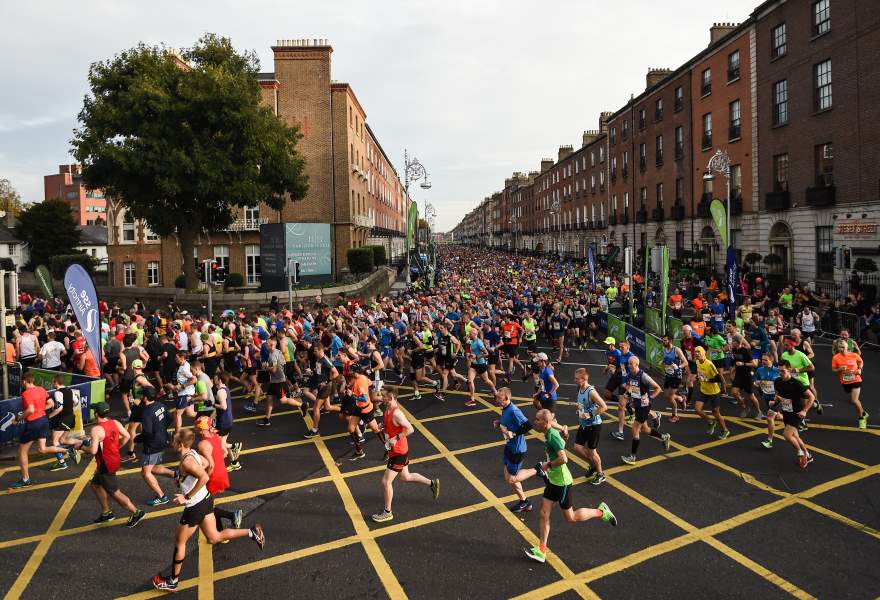7 things not to do on a run
Even the most experienced runners make these mistakes
 Photo by:
Stephen McCarthy/Sportsfile
Photo by:
Stephen McCarthy/Sportsfile
If you’re new to running, you probably have some lessons you still need to learn. Even if you’re an experienced runner, every now and then you might need to be reminded of some of these lessons. Every runner is different, and some things work better for certain people than they do for others, but there are a few rules that are pretty much universal that every runner should follow. To help you out, we’ve listed seven of them, and whether you’re new to the sport or a seasoned vet, they’re worth reviewing.
Don’t stop because your watch dies
We get it, it’s super annoying when you’re out for a run and your watch conks out, but that’s no reason to walk home. A lot of people like to say, “Strava or it didn’t happen,” meaning that if your run isn’t on Strava, you might as well have skipped the workout altogether. Here’s a little secret, though: even if you can’t upload your run to Strava or track it on your watch, it’s still worth doing. There might not be documentation of the work you’re putting in, but your body doesn’t care about that, and as long as you continue to train, you’ll get faster.

Don’t run sick
If you’re sick, take a few days off and rest. Running while sick could make you more tired than you already are, and that could turn a two-day cold into a week-long illness. It’s unfortunate that you’ll have to miss a few days of training, but if you don’t rest now, you’ll probably end up missing even more days later.
RELATED: Six things runners do but probably shouldn’t
Don’t race in training
Running with other people can be a great motivator, but don’t get too obsessed with who’s faster in training. If you push yourself too hard, whether on easy days or during speed sessions, you could end up injured. Training is not the time to let your ego cloud your judgment (well, there’s really no good time to let that happen), and if you do, your training session could turn into a race with your running buddies. This might be fun in the moment, but it could ruin you for future training sessions and real races.

Don’t train without a goal
Whether your goal is to run a PB, to be active a certain number of days each week or anything else, it’s good to have something to work toward. If you don’t go into your runs without a specific goal in mind, it will get easier and easier to skip training sessions.
Don’t eat something new before a run
In training and racing, don’t try eating something new before you go out for your run or during your run. This is especially important in racing, but it’s even worth keeping in mind during training, too, as a new food before your workout could ruin your session. Stick to the foods you normally eat before or during training to avoid any stomach issues mid-run.
RELATED: Classic mistakes every new runner should avoid
There is an exception to this rule. If you want to work a new food into your pre- or mid-run nutrition plan, then you of course have to test it out in training. Be very intentional about this and try testing it on easy runs to start, then add it to workouts before making it part of your race plan. The last thing you want is surprises at the track or on the race course.

Don’t forget to go to the washroom
Speaking of surprises, always go to the bathroom before your run. Even if you don’t think you have to go, please, just try. This has always been important, but it’s especially necessary now, as many public washrooms are closed due to the pandemic. Be safe. Avoid surprises.
RELATED: 5 mistakes highly motivated runners make
Don’t hog the trail
If you’re on a trail, share the space with everyone else. Remember that there are other people out there, so be aware of your surroundings. If you see someone coming or hear movement behind you, make room and let them pass. No one likes a trail hog.


